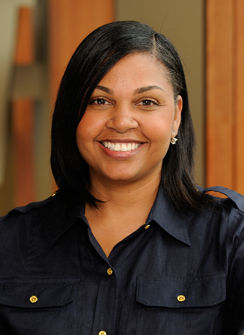When COVID-19 became a pandemic and the government issued “stay at home” orders, the first thing I did was call my dad who was 80 years old and lived in Spring Valley, New York.
I knew this active senior citizen needed some guidance. He doesn’t like staying home. The highlight of his day is going to his Senior Center to exercise, socialize, and do arts and crafts. He also drives his car around town to visit friends as often as possible. So I called and asked, “Are you staying home?”
He responded in his strong Haitian accent, “Yes darling, I don’t want to get sick.”
Two weeks later, it was April 2.
I was on Zoom with my colleague Maddie excitedly discussing a manuscript we submitted for publication that we were advised to “revise and resubmit.” A couple of calls came through on my phone, but I ignored them as I usually do during work hours. Maddie and I shared our screens to review graphs and tables. And then on the video, I noticed my husband standing at the door behind me.
Ralph has never walked on in on my Zoom sessions. He was just standing there, with no words, looking at me. I asked Maddie to give me a moment and walked over to him.
He said, “I don’t know how else to tell you this, but your dad just passed way from the Coronavirus.”
There was silence. It was deafening. I went back to my computer and said, “Maddie, my dad just died of COVID-19 and I don’t know what to do.”

My father was Mateus D’Artagnan Germana. My grandfather named him D’Artagnan after his favorite character from The Three Musketeers. D’Artagnan (as everyone called him) was born in Haiti and emigrated to the U.S. in the late 1960s in pursuit of the American dream. And he fulfilled that dream until April 2, 2020. I watch the news every day, follow the statistical models on the Johns Hopkins resource website, but I never could have imagined it would actually hit home. My heart is broken.
The hardest part of losing a loved one to the Coronavirus is not being able to say goodbye.
Typically when a family member is sick in the hospital, loved ones can be with them, and then have a funeral when they die. Not this time. Due to the highly infectious nature of this virus, hospital visits are prohibited and those afflicted with the disease are left to die alone. A funeral is not always an option either, especially these days in New York. So just like the classes I teach, my father’s memorial had to be held online. This was my new normal.
End-of-life care during the COVID-19 pandemic has become an ambiguous concept. I teach nursing students about the most important parts of end-of life care; I reinforce the importance of families being present during a patient’s final moments. This isn’t way it’s supposed to be.
Nurses, we need to think about how we can support our patients and families at end-of-life during the COVID-19 pandemic. I don’t want this to be our new normal. We need to find ways to help families feel close to loved ones during their final moments even if they can’t physically be there. I look forward to the time when I spend every moment with my loved ones again, and we can gather to celebrate my father’s life.
Read More:
- Self-Efficacy to Cope with Coronavirus
- 13 Tips to Help Those New to Social Distancing
- Being a Good Neighbor During COVID-19
- The Caregiver’s Mental Health is Important Too
ABOUT THE AUTHOR

Diana Baptiste, DNP, MSN, RN, CNE is an Assistant Professor at Johns Hopkins School of Nursing. A registered nurse for more than 19 years, she specializes in cardiovascular health care and prevention in underserved populations. Her research and scholarship are focused on improving self-care behaviors among adults living with cardiovascular disease. In Sigma Nursing, she is the immediate past president of the Nu Beta at-Large chapter and currently serves as North America Region 12 coordinator.
